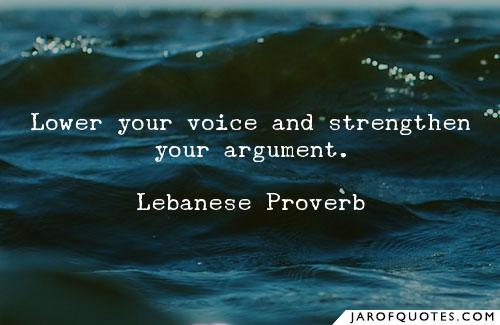Do Lower Voices Command More Respect?
Do "lower" voices command more respect?
Misconceptions about voice and presence

We often hear that a deeper voice exudes authority. But is it really that simple? On the surface, it sounds "right," but this idea leaves a lot open to interpretation.
When we talk about "lowering" a voice, we might mean pitch or volume. If it's volume, I get it. Staying calm and not raising your voice in a tense situation can certainly make you appear more professional and in control.
But if we're talking about pitch, that's where things get a little muddled. It's not really about lowering the frequency of your voice. It's about deepening the resonance of your sound. These are two very different elements of voice.
If the idea of lowering pitch is taken at face value, it implies that women can never match the gravitas of men because men's voices are typically lower due to anatomy. And that's just not true. I've worked with enough men and women—and read enough research on marketing and voice—to know that credibility and strength aren't gender-dependent.
What Happens When We Force Our Voices?
To illustrate, let's look at what some of my clients often do. Many businessmen I've worked with push their voices to the bottom of their range, presumably to sound more masculine, authoritative, or strong. In doing so, they rob their voices of depth and richness, making their sound smaller. This also tends to flatten their voices into a monotone because there's less room for inflection—a critical element for conveying emphasis, emotion, and connection. The result? Their message comes out dulled and less impactful.
Many women I've worked with do something similar. In an effort to sound more powerful or credible, they push their pitch down and end up using glottal fry. This diminishes their voices and strips away their character, dynamism, and true power.
What Really Conveys Strength in Your Voice
Here's the thing: your mindset, personality, and commitment to what you're saying—along with your attitude toward your listeners—are all conveyed through your voice. If you're not using your voice effectively, you're weakening your message and, in some ways, watering down the essence of who you are.
The Secret to a Strong, Effective Voice
The key lies in learning how to connect your breath to your sound while creating large, open spaces within your body for that sound to resonate. When we're nervous or tense, we tend to breathe more shallowly and make ourselves smaller. This is where voice training can be a game-changer. Learning how to use your voice properly can help you remain calm, present, and credible. It's a feedback loop: when you sound grounded and in control, you're more likely to feel that way, too.
It may take some training, but the difference good speech and voice technique can make is profound—not just in how your message is delivered but in how you feel while speaking. Two speakers can say the same words and create entirely different impressions in their listeners, eliciting vastly different responses. The voice makes the difference.
Why Don't More People Use This Tool?
Most people aren't taught about their voice or how to use this incredible instrument they were born with. But it's simpler than you might think to learn how your voice works and how to "play" it in the most practical sense.
If you knew how much of an asset your voice could be—in business and beyond—wouldn't you want to explore its potential?
Ready to Explore?
For a free consultation or advice on how to use your voice more effectively and healthfully—professionally or socially—drop me a note. Learning to unlock the power of your voice is easier than you think. And it can make a world of difference—not only in your professional success but also in your overall well-being.


